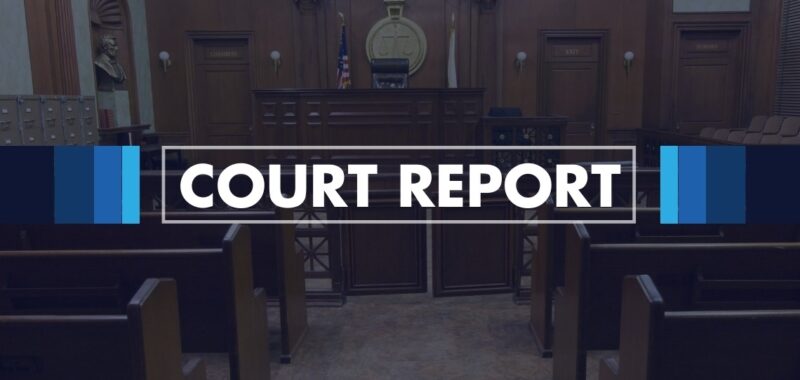Editor’s note: The COURT REPORT is RISMedia’s weekly look at current and upcoming lawsuits, investigations and other legal developments around real estate.
The latest legal proceedings ranged from class-action lawsuits targeted specifically at the real estate industry to wide-ranging national decisions that will include housing in its wake.
NAR’s petition for rehearing with DOJ has been denied
Earlier in 2024, the Department of Justice (DOJ) reopened an inquiry into the National Association of REALTORS® (NAR)—the inquiry had been closed in 2020. The DOJ seems particularly concerned about NAR’s business relationship with MLSs, believing it and associated policies could be antitrust infringement.
NAR had previously petitioned for a rehearing in the case that permitted the DOJ to reopen its investigation. On July 12, NAR’s petition was denied by the U.S. Court of Appeals for the District of Columbia Circuit in Washington, D.C. Thus, the investigation will continue for the time being; a previous meeting between the DOJ and NAR did not result in substantive progress toward a resolution.
An NAR spokesperson told RISMedia: “This ruling stands in opposition to years of precedent on the interpretation of government contracts and the bedrock principle that the government must honor its word. We are evaluating all remaining legal options and are committed to exploring all avenues to ensure the DOJ is held to the terms of our 2020 agreement.”
The Supreme Court overturns Chevron Deference, upending regulatory state
In 1984, the U.S. Supreme Court ruled in Chevron U.S.A., Inc. v. Natural Resources Defense Council, Inc. that federal regulators have broad authority to interpret and apply regulations as they see fit, and courts should defer to agencies’ expert opinions when deciding regulatory cases.
Under “Chevron Deference,” courts would generally allow agencies to interpret and apply statutes based on their own expert opinions. Judges themselves would decide questions based on Congress’ intent when passing a regulation rather than a strict textual reading. (e.g., a new disease-causing chemical is discovered after the law regulating such chemicals was written. Agencies would classify it as hazardous under that law, and courts would respect that, even if that particular chemical couldn’t be specifically listed as such in the law because the lawmakers were unaware of its existence at the time.)
On June 28, the Supreme Court overturned this precedent in Loper Bright Enterprises v. Raimondo. Chief Justice John Roberts wrote, “Chevron’s presumption is misguided because agencies have no special competence in resolving statutory ambiguities. Courts do.”
Legal experts have said the decision will be a consequential one, including in the housing market, for it opens the door to legal challenges on long standing regulations. Housing experts have been split by these potential ramifications.
More brokerages settle in seller class-action lawsuits, several others opt to continue litigation
July 15 marked a filing deadline for defendants in Gibson v. National Association of REALTORS®. Filed in Missouri, Gibson is a consolidated class-action lawsuit by homesellers who sold using an NAR-affiliated MLS.
When that deadline came, United Real Estate and HomeSmart became the latest brokerages to settle in homeseller class-action lawsuits. United CEO Dan Duffy said in a release:
“We have always been committed to providing the best support and value for our brokers and agents. This settlement allows us to focus on empowering agents with the tools and resources they need to compete and serve their clients with excellence, without the burden of prolonged litigation.”
Under this settlement, United Real Estate will pay $3.7 million. Like most other brokerages that have settled, it will make changes to its business rules while denying any accusation of wrongdoing.
The settlement had ripple effects. Plaintiff Chris Masiello in Masiello v. Arizona Association of Realtors et al (a smaller-scale class-action lawsuit filed in Arizona) filed a motion on July 22 to stay the case as it pertains to HomeSmart, as the Masiello class of plaintiffs fall under the same class as those in the Gibson case. The stay was approved shortly after filing.
However, other plaintiffs—The K Company, Real Estate One (REO), NextHome, William Raveis, Howard Hanna, Weichert, Crye-Leike Realty, John L. Scott, eXp Realty, Baird & Warner and Keyes Illustrated Properties—filed to continue litigating the Gibson case for the time being.
“John L. Scott Real Estate has never acted as a listing broker or buying broker in connection with a real estate transaction occurring in the State of Missouri,” wrote Lennox Scott, owner of John L. Scott Real Estate, in a filed affidavit. “In my entire tenure as an agent or officer of John L. Scott Real Estate, I have never believed that it would be possible or reasonable to be subject to jurisdiction in a Missouri court.”

